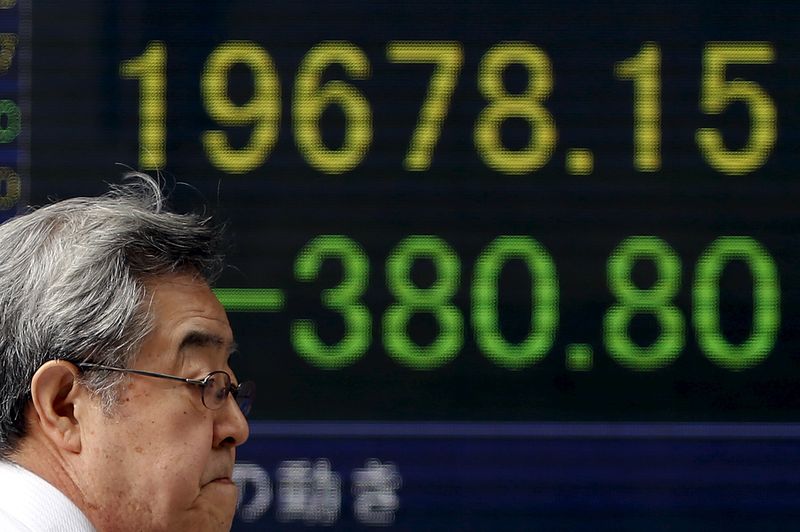This post was originally published on this site
https://i-invdn-com.akamaized.net/news/LYNXMPEB4C07I_M.jpg
Investing.com – Asian stocks were down on Friday on the back of a Chinese proposal to implement controversial national security laws in Hong Kong.
China moved on reports that circulated on Thursday that it was planning national security laws for Hong Kong after pro-democracy protests engulfed the special administrative region in the second half of 2019.
Chinese Premier Li Keqiang said during the opening session of the National People’s Congress, “We will establish sound legal systems and enforcement mechanisms for safeguarding national security in the two special administrative regions [Hong Kong and Macau], and see that the governments of the two regions fulfill their constitutional responsibilities.” Li added that the government would push ahead with a plan to integrate Hong Kong with other cities in southern China.
China will improve national security in Hong Kong, Premier Li Keqiang said, a day after China announced dramatic plans to rein in dissent by writing a new law into the city’s charter.
The laws would ban secession, foreign interference, terrorism and all seditious activities aimed at toppling the central government and any external interference in Hong Kong.
The remarks prompted an immediate response from the United States, with President Donald Trump issuing a stern warning to China, “I don’t know what it [possible Chinese actions] is because nobody knows yet…[but] if it happens, we’ll address that issue very strongly.”
Two U.S. Senators are also preparing a bill to implement sanctions against entities involved in enforcing the law.
Hong Kong’s Hang Seng Index slid 3.79% by 10:57 PM ET (3:57 AM GMT).
China’s Shanghai Composite dropped 1.71% and the Shenzhen Component was down 1.05%, after China broke with years of tradition and failed to set a numerical GDP target due to the economic impact of the COVID-19 virus.
Japan’s Nikkei 225 dropped 0.50%. The Bank of Japan kept its main policy rate unchanged and said that it will start a new lending program in June.
South Korea’s KOSPI fell by 1.16% and the ASX 200 was down 0.53%, giving up some of its earlier gains.
Some investors fear that the laws could re-ignite protests in the city and, along with rising U.S.-China tensions, bring insecurity in the market.
“Justifiably, the Hong Kong Security bill on the agenda for the NPC in Beijing today evokes insecurity in the markets; as risks of US China conflict and renewed Hong Kong protests grow,” Mizuho Bank analysts said in a note.
“The geopolitical risks are meaningful,” David Riley, chief investment strategist at BlueBay Asset Management LLP, told Bloomberg.
“It’s a concern for the market, is a potential source of weakness and a correction.”
But other investors were hopeful that the correction would be temporary.
“The temperature of US China tensions are rising and taking a bite out of risk sentiment everywhere, albeit only modestly so at this stage,” Ray Attrill, head of foreign exchange strategy at National Australia Bank (OTC:NABZY), said in a note.

